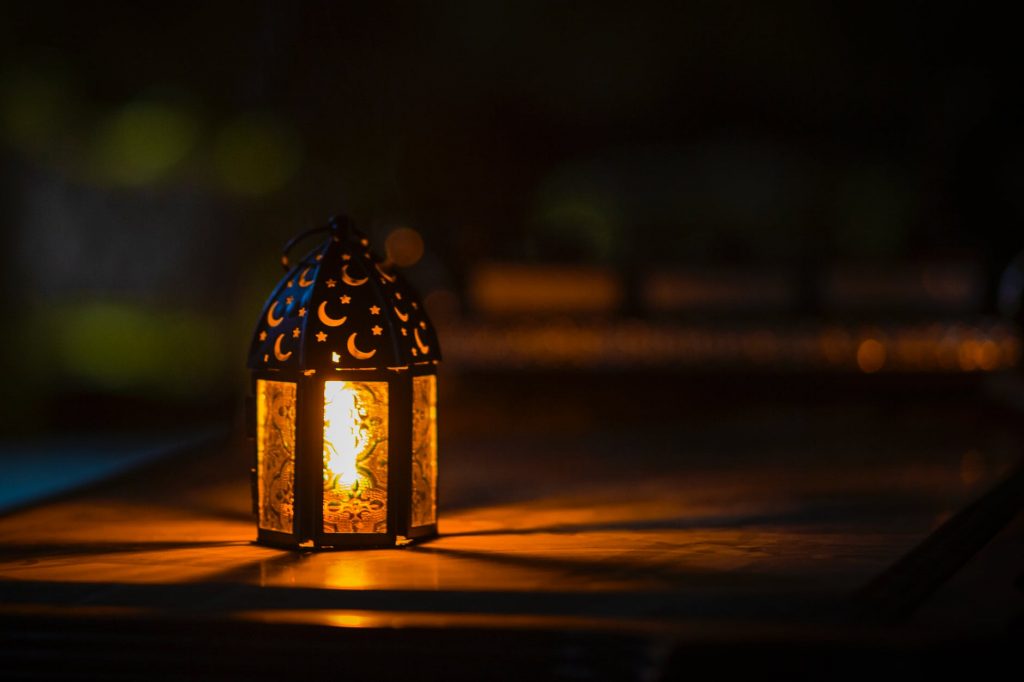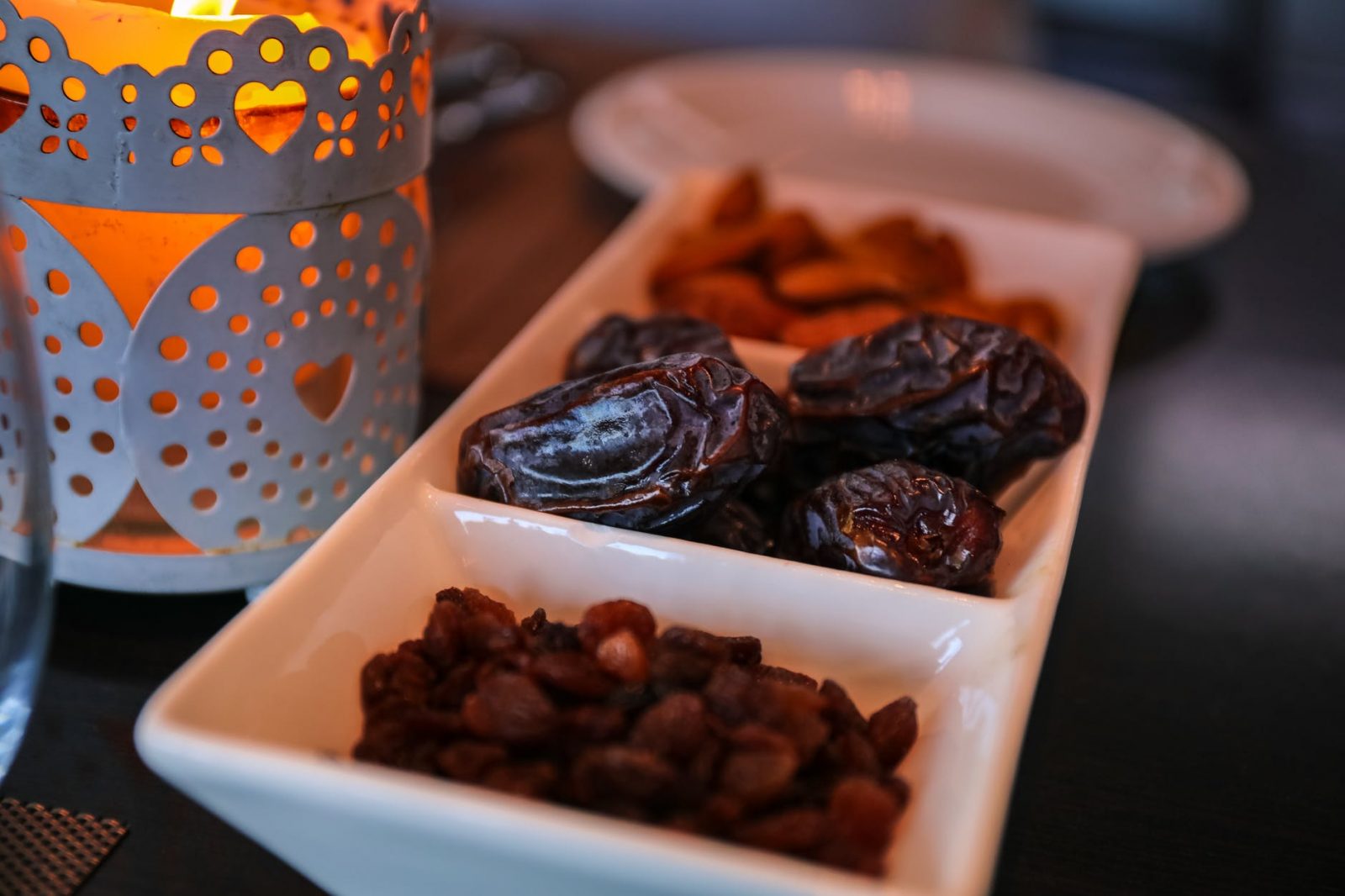Below are a few tips and tricks for you to maintain your fitness during Ramadan.

The Holy month of Ramadan is here again. For those of you, who don’t have much idea about what Ramadan is, here’s a little background:
According to Wikipedia, Ramadan is the ninth month of the Islamic calendar, which Muslims worldwide observe as a month of fasting (along with other religious rituals). That is Muslims fast from sunrise to sunset during this month. They do not consume any food during this time. And no, not even water.
A lot of you have already come across the term ‘Intermittent Fasting’. If you put aside the religious causes behind fasting from day to dawn during Ramadan, it can almost be related to Intermittent Fasting. With that being said, staying fit during this holy month is quite a hard nut to crack.
Did you know that you could gain about 9 kilograms after fasting for a month? How may you ask? Well… it’s easy math. After fasting all day long, it is pretty hard to resist enjoying all the tasty meals presented on the Iftar table. Trust me, I can relate! Then comes dinner, a diet full of carbs for most of us! Finally, how can we forget about Suhoor before dawn? Firstly, yes, it is an odd enough time to eat a heavy meal. Most of us end up eating a considerable amount of food to not get hungry during the day.
So…
With mindless eating starts the baseless gaining.
And for this reason, below are a few things you can follow to stay healthy during Ramadan.
Breaking your fast
Now, mind this, you have got to treat your iftar meal as the main meal you’ll be consuming during Ramadan. So, you must make the best of it!
- The best way to break your fast is to take 2-3 dates and drink two to three glasses of water.
- It’s best to avoid drinks full of sugar, i.e. sugary smoothies, juice, carbonated drinks and so on!
- Make sure your meal consists of adequate carbs, proteins, fibre, vitamins and other nutrients. Fill your plate with delicious fruits.
- Include a lot of fruits in your meal. You can make easy to go fruit salads using yoghurt and fruits of your choice! Here’s a small recipe for fruit salad that you can prepare:
Make sure to cut sugar or replace it with honey in the next one:
- If not in the mood for fruits, you can mix and match your favourite veggies and make yourself a veggie salad! Here are some ideas:
After eating your fruits and veggies, to eat meals packed with protein. One of the hardest things to do during Ramadan is to avoid fried food. But one’s gotta do what one’s gotta do. so, here are some healthier alternatives.
Sehri/Suhoor:
The best thing to do during sehri is to keep it as light as possible. However, you also have to keep in mind that this is the last meal you’re about to have in the next couple of hours. So, instead of eating a meal that will make you full momentarily (a.k.a meals filled with carbs), try to eat a more protein-packed meal. Try to include more plant protein in your meal and of course, eggs. And oh, drink more water! Here are a few healthy and easy-to-prepare meals that you can try this Ramadan:
Also, a few points to be noted:
- Do not torture yourself if you want to eat some rice or anything rich with carbs! Just make sure to control your portion when you’re eating those.
- If you feel like having desserts after your meal, opt for dates! Dates are not only low in calories, but they are also yummy sweet treats.
- Hydrate, hydrate, hydrate!!
FAQs related to fitness during Ramadan
Should I exercise during fasting?
Well, the answer to this is, yes but no.
While it is vital not to be a couch potato when you’re fasting, it is also essential for you to not exhaust yourself during the day.
So, in my opinion, it’s best to work out/exercise after breaking your fast. For, it is hard not to chug bottles of water after a high-intensity workout session. However, you can still do light workouts at home or even walk for an hour or so when you’re fasting.
What should I eat for dinner?
During the month of Ramadan, your diet routine changes drastically. So, in my opinion, dinner during this month is not very important. You can skip it if you’re not hungry. However, there’s no need to starve yourself to “lose weight” or “stay fit”. You can eat light, healthy snack-ish food for dinner. Almonds are an excellent example for this, or maybe, eat fruits of your choice.
Is it okay to skip Suhoor?
BIG NO! You will be fasting for hours during the day. So, it is very important that you eat a proper balanced meal during Suhoor. Skipping Suhoor will not only make you feel weak but also cause long-term health problems.
Staying healthy is essential, especially considering how crazy the world is nowadays. This Ramadan, make sure to replace your habits with healthier ones!
p.s. all of these points are written on the basis of personal experience. If you have any health condition, make sure to consult a professional dietician before implementing any diet plan.


























Thanks for the suggestions 😘😘
That’s a good massage for the Ramadan. Thanks 🧕🏻🧕🏻💕💕
Thank you for all the healthy tips 🧆